Rising Stars
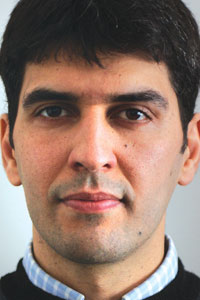 Ehsan Arabzadeh
Ehsan Arabzadeh
University of New South Wales, Australia
http://www2.psy.unsw.edu.au/Users/earabzadeh/
What does your research focus on?
A principal challenge of systems neuroscience is to quantify brain activity underlying behavior. Key questions include: How are different stimuli represented in neuronal activity? How does neuronal activity give rise to animals’ choices? I have a broad interest in systems neuroscience spanning areas such as sensory coding, adaptation, and learning. In the lab, we perform neuronal recording from cortex and deep-brain structures in anesthetized as well as awake behaving rats, and apply computational methods to quantify the way in which single neurons or neuronal ensembles code for sensory stimuli, the animal’s choice, and the outcome of a behavioral action.
One focus is the rat whisker sensory system. The detailed knowledge of cortical processing circuitry, combined with the animals’ high-level sensory capacities, makes this system an ideal platform for studying the neuronal bases of behavior.
What drew you to this line of research? Why is it exciting to you?
I studied medicine at Tehran University intending to practice, but I soon became interested in research. Neuroscience was the field that appealed to me most, particularly the study of higher functions in relation to cellular activity. In a small group of medical students, we read and discussed neuroscience papers with fascination. My interest in neural coding became more focused and grew in time during my PhD years at The International School for Advanced Studies (SISSA), Trieste, Italy. I believe what drew me to this research was a simple desire to know how the brain works. Most exciting is the inspection of neuronal activity — either by listening to a single neuron fire in response to sensory stimuli or by looking at neuronal ensemble activity using in vivo imaging techniques. Knowing that I am encountering the physical substrate for a perceptual experience is quite a thrill.
Who were/are your mentors or psychological influences?
Mathew E. Diamond — it has been a great pleasure and inspiration having him as my PhD advisor. These days, I often find myself in the middle of an intense discussion with Fred Westbrook on some detailed aspect of learning theory.
To what do you attribute your success in the science?
My father, a chemist, taught me patience and attention to detail, and my mother, a medical doctor, showed me how to care and be passionate about my work.
What’s your future research agenda?
In recent years, there has been considerable progress in understanding the neuronal mechanisms that underlie sensory representations. However, much less is known about how animals integrate sensory information to make decisions in an uncertain and often changing environment. In the lab, we aim to build on our detailed knowledge of an expert sensory system, the rat whisker sensory system, and investigate the neuronal underpinnings of choices and behavior.
Any advice for even younger psychological scientists? What would you tell someone just now entering graduate school or getting their PhD?
My observation is that not enough attention is given to brain structure and function. Neuroscience is close to being able to ground some psychological processes in neural mechanisms. As such it offers young psychological scientists a real prospect to contribute to understanding nature’s most complex physical object — the brain. As a graduate student I myself enjoyed learning anatomy and physiology which proved invaluable for sharpening my research questions and approach.
What publication are you most proud of or feel has been most important to your career?
Arabzadeh E, Zorzin E, & Diamond ME (2005). Neuronal encoding of texture in the whisker pathway. PLoS Biology, 3(1), e17.
This research constituted the first demonstration of coding of naturalistic stimuli in rat whisker systems. The paper demonstrated that as a whisker moves along a given textured surface, there is a “signature” of whisker vibration unique to that surface; driven by whisker vibration, receptor and cortical cells produce remarkably precise trains of spikes. These spike sequences, unique to each texture, are the words that form the neuronal language of texture sensation. This paper triggered a surge in interest and rapid progress in the field, and I was pleased that it received 100 citations in the first five years after its publication.
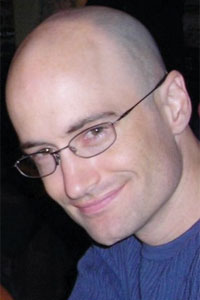 Joshua Correll
Joshua Correll
University of Chicago, USA
http://home.uchicago.edu/~jcorrell/index.html
What does your research focus on?
Racial stereotypes are complex and multifaceted. Researchers have highlighted the diverse attributes that are associated with a variety of racial groups. But amid this variability, stereotypes of the “other” as dangerous seem to occupy a special role. In the United States, these stereotypes are frequently applied to Black people — particularly to Black men. The presentation of a Black male face on a computer screen prompts attentional and physiological reactions in roughly a tenth of a second, and can motivate defensively oriented behavior. The mechanisms and consequences of these threat-based stereotypes constitute my primary research interest.
As a platform for studying the relationship between race and threat, much of our work employs a task in which participants decide whether or not to shoot a potentially dangerous “target.” This first-person-shooter simulation presents a series of images of young men, some Black, some White, some armed, some unarmed. The player’s goal is to shoot any and all armed targets. Using this task, we find robust evidence of bias, such that participants shoot an armed target more quickly and more frequently when that target is Black (rather than White), but they decide not to shoot an unarmed target more quickly and more frequently when the target is White (rather than Black). In essence, participants are faster and more accurate when targets conform to the cultural stereotype that Blacks are dangerous. Our initial work with this paradigm highlights the fast-acting influence of race on perceptions of threat, leading us to questions about the psychological processes that drive this bias as well as the potential to overcome it.
What drew you to this line of research? Why is it exciting to you?
I was originally drawn to this work by the death of Amadou Diallo. The year before I started graduate school, Diallo — an unarmed Black man — was shot and killed by police officers who thought they saw him draw a gun (really, he was reaching for a wallet). There were widespread allegations that the officers were influenced by Diallo’s race; that they would have responded differently if Diallo had been a White man. We wanted to put that claim to the test — to experimentally assess the impact of race on decisions to shoot.
The research is exciting to me for two very different reasons. First, because I hold out hope that we will eventually develop a solid enough understanding to provide meaningful insight about real-world problems. People often tell me that our shoot/don’t-shoot work is very “applied.” The work may seem like it has obvious real-world implications, but the truth is that it has been really difficult to get to a point where we have anything meaningful to say to police. It’s difficult to build a bridge from the lab to the street. The translation is slow, messy and frustrating. But I like to think that with care, creativity and hard work, we will ultimately bridge the gap.
The second source of excitement is the sense of wonder that can come from a new discovery. It’s obviously critical to develop predictions based on a solid theoretical foundation, but it’s really fun when those predictions also push far enough into the unknown that they shake your assumptions a little bit.
Who were/are your mentors or psychological influences?
I have been incredibly lucky so far. I’ve had amazing mentors to guide and push and pull me along. They have helped me tremendously with advice about concrete details on specific projects, but also by exposing me to their views about the scientific endeavor more generally. Bernadette Park, Chick Judd, Bernd Wittenbrink and John Cacioppo have each had a tremendous impact on me as a researcher. They’ve taught me a lot about intellectual and experimental rigor and the joy of the research process.
To what do you attribute your success in the science?
As silly as it sounds, I think one of the primary determinants of success in research is being unwilling to fail. If you really want to know the answer to a question, you don’t give up. Studies can go awry (mine go awry pretty often), but even when a study doesn’t give you a clear answer to the question you care about, it tells you something. As you delve into the data, you learn what you can from your mistakes, design a better study, and repeat the process until you’re confident you’ve really tested the hypothesis. Given the complexity of human behavior, you’re likely to find something interesting along the way.
What’s your future research agenda?
More recently, we have begun to look at how racial cues capture and hold attention, as well as fairly subtle differences in the way perceivers process faces of ingroup and outgroup members. For instance, we have been using visual half-field studies to explore asymmetries between the left and right hemispheres of the brain in the processing of Black and White faces. I hope to learn more about the antecedents and consequences of these effects.
Any advice for even younger psychological scientists? What would you tell someone just now entering graduate school or getting their PhD?
I suppose I’d tell them to choose their research area carefully. It’s relatively easy to run one decent study, but it’s hard to develop and sustain a good program of research. I think our goal as psychologists should not be to run a couple of cute studies. Our goal should be to rigorously advance an understanding of how the mind works — to explore mechanisms and consequences through a thoughtful body of work. To conduct that kind of sustained investigation, personally, I need to be deeply curious about the phenomena I’m studying. The glorious thing about this profession, of course, is that we are essentially free to study whatever we want. Unlike most people, we can define the scope of our work. I guess my argument is that, although we tend to think of academic freedom as a luxury, making a choice to study something that you love actually makes you a better scientist.
What publication are you most proud of or feel has been most important to your career?
Correll, J., Park, B., Judd, C. M., Wittenbrink, B., Sadler, M. S., & Keesee, T. (2007). Across the thin blue line: Police officers and racial bias in the decision to shoot. Journal of Personality & Social Psychology, 92, 1006-1023.
In 2007, my colleagues and I published a paper based on data from 270 police officers from around the country, 127 lay people, as well as a group of undergraduates in the lab. It was an enormous investment of time and energy, but we were all driven by an intense desire to find out what the data would show. And (to me, at least) the results were surprising and remarkably generative — they pushed our research in an entirely different direction. It was a great team effort and a really fun project.
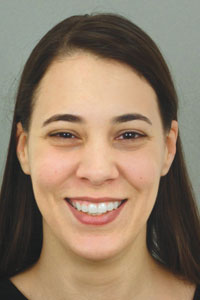 Lisa DeBruine
Lisa DeBruine
University of Aberdeen, UK
What does your research focus on?
Interpreting a wide range of signals from the face is at the center of social interaction. My original focus of research was on human kin recognition and how people respond to facial resemblance. As predicted by biological theories of inclusive fitness and inbreeding, I find that people perceive computer-generated facial resemblance as “trustworthy, but not lust-worthy”. This led to a productive second line of research on social perception of faces more generally, which has developed into further lines of research on social perception of voices and on the cognitive and visual processes that underpin face perception.
What drew you to this line of research? Why is it exciting to you?
I have always been fascinated by kinship and facial resemblance, possibly because I’m adopted. Being originally trained in biology, I knew that kinship is fundamental to many biological theories of social and sexual behavior and was excited by the potential for such theories to inform psychological research.
Who were/are your mentors or psychological influences?
I’ve been lucky to have excellent mentors at every stage of my career. My undergraduate thesis supervisor, Eugene Burnstein, helped me to realize that I love doing research as much as learning about it. During my masters, Bobbi Low encouraged my interest in evolutionary approaches to human behavior and introduced me to my eventual PhD supervisors, Margo Wilson and Martin Daly. They have been my most inspirational mentors; I hope someday to approach their success as scientists and teachers. Finally, the mentor for my NSF postdoctoral fellowship, David Perrett, is an amazing scientist and continues to have a huge influence on my work.
To what do you attribute your success in the science?
Two things have been essential to my scientific success: having a large collaborative network and working on my technical skills. Good collaborators bring together different skills and knowledge, making the whole much more than the sum of its parts. Being able to work on so many topics and having such a prolific output (I recently had my 100th paper accepted) wouldn’t be possible without my wonderful collaborators, especially Benedict Jones and Anthony Little. Another thing I’m really glad I did early in my career was to develop good programming skills. I focused on learning web and database programming so that I could put in place systems for my lab to catalog stimuli, set up experiments quickly, collect data online and in the lab, and store and organize data reliably and efficiently. This system allows my lab to be amazingly productive and lets us do projects that would otherwise be too expensive or time-consuming to consider, such as our investigation of the link between health and face preferences in several thousand women from 30 different countries and 50 U.S. states (DeBruine et al, 2010 & 2011 Proc Roy Soc B).
What’s your future research agenda?
I’m just about to start a two-year ESRC-funded project looking at the relationship between mate preferences measured in the lab and the actual partner choices people make out in the real world. I am also working to develop a general model of kin recognition, following a paper I recently published in PNAS that raised some interesting questions about current models of kin recognition.
Any advice for even younger psychological scientists? What would you tell someone just now entering graduate school or getting their PhD?
I would recommend to any scientist to consider approaches from other disciplines. My own work has really benefitted from theory and methods from biology, anthropology, and economics. I would also advise younger psychologists to devote time to developing technical skills. Finally, set up the infrastructure for your lab with your most ambitious future projects in mind.
What publication are you most proud of or feel has been most important to your career?
I am most proud of my recent paper in PNAS, which integrates my previous research on the social perception of facial resemblance with other influential work in kin recognition about the role of experience with siblings.
DeBruine, L. M., Jones, B. C., Watkins, C. D., Roberts, S. C., Little, A. C., Smith, F. G. & Quist, M. (2011). Opposite-sex siblings decrease attraction, but not prosocial attributions, to self-resembling opposite-sex faces. Proceedings of the National Academy of Sciences, 108, 11710-11714.
References
DeBruine, L. M., Jones, B. C., Crawford, J. R., Welling, L. L. M., & Little, A. C. (2010). The health of a nation predicts their mate preferences: Cross-cultural variation in women’s preferences for masculinized male faces. Proceedings of the Royal Society of London B, 277(1692): 2405-2410.
DeBruine, L. M., Jones, B. C., Little, A. C., Crawford, J. R. & Welling, L. L. M. (2011). Further evidence for regional variation in women’s masculinity preferences. Proceedings of the Royal Society of London B, 278(1707): 813-814.
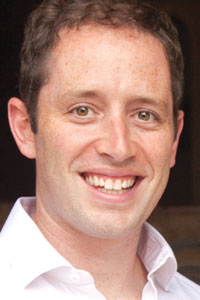 Hal E. Hershfield
Hal E. Hershfield
Stern School of Business, New York University, USA
http://people.stern.nyu.edu/hhershfi/
What does your research focus on?
Broadly, I study the ways that thinking about time can transform the emotions people feel and alter the judgments and decisions that they make. Within this framework, I have carried out two related lines of research. First, I study the role that considerations of the future play in guiding emotional experience and directing decision-making. In this vein, I have studied how an awareness of imminent endings (a) gives rise to a mixture of happiness and sadness and (b) directs one’s attention and even one’s gaze toward positive information. Further, I have found that looking ahead in time and feeling a sense of connection to one’s future self can impact long-term financial decision-making, converting a consumer into a saver. In my second line of research I examine the ways that reflections about the past can change investments in the present. Here, I study the ways that counterfactual reflection — or thoughts about what might have been rather than what was — fosters a greater sense of commitment to entities such as companies, countries, and important others.
What drew you to this line of research? Why is it exciting to you?
From the best literature to everyday conversations, people constantly try to make sense of what’s occurred in the past and what will eventually happen in the future. Gaining better insight into these varied cognitions, and the ways in which they impact decision-making, is one way to help improve well-being.
Who were/are your mentors or psychological influences?
In graduate school I was fortunate to work with Laura Carstensen and Brian Knutson at Stanford University, who collectively instilled in me a desire to tackle research questions that are not only exciting but that also matter to society, and Joseph Mikels was patient enough to show me how research actually gets done. During my post-doctoral fellowship at Northwestern University, Adam Galinsky, whose enthusiasm for research and experimental methods is infectious, taught me how to think more creatively about the problems I try to address; the possibly unattainable goal that I’ve now set out for myself is to one day match half his level of productivity. Finally, my thinking has been greatly sharpened over the last several years by my collaborations with Jeremy Bailenson (Stanford University), Dan Goldstein (London Business School and Yahoo Research Group), Derek Isaacowitz (Brandeis University), and Bill Sharpe (Stanford University).
To what do you attribute your success in the science?
If I had to consider myself successful (which truth be told, I don’t quite yet), I would attribute that success to the energetic, bright, and personable colleagues with whom I’ve worked. That and I’ve bought a program called “Freedom” which allows me to turn off the internet on my computer when I’m trying to write papers.
What’s your future research agenda?
I’d like to continue carrying out research that aims to better understand the ways that people conceive of their future selves, and how such conceptions affect a host of outcome variables. Ultimately, I would like to write a few review pieces that merge what my colleagues and I have learned about the self over time with the previous work that has been done in the domains of judgment and decision-making and social psychology.
Any advice for even younger psychological scientists? What would you tell someone just now entering graduate school or getting their PhD?
Never engage in social comparison. I would probably stop working out if I regularly compared myself to the strongest people at the gym. Similarly in graduate school, it’s crucial to focus on your own goals — and how easily you’re meeting them — rather than the progress that’s been made by others. I would also say that it is important not to get too excited or upset by the regular ups and downs that come with being an academic. There will always be datasets that work out really well and others that fail, but allowing your emotions to be too linked to these outcomes will make for an unstable and ultimately unsustainable graduate school career.
What publication are you most proud of or feel has been most important to your career?
Ersner-Hershfield, H., Wimmer, G. E., & Knutson, B. (2009). Neural evidence for self-continuity in temporal discounting. Social Cognitive and Affective Neuroscience, 4(1), 85-92.
I am most proud of this paper because it represents my first foray into understanding the relationship between thoughts about the future self and saving behavior. The fact that it was also an incredibly labor-intensive (but also fun) study to run made its eventual publication that much more rewarding.
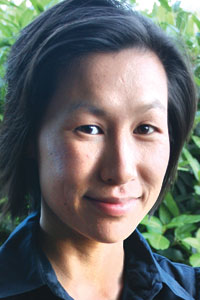 Karen Gonsalkorale
Karen Gonsalkorale
The University of Sydney, Australia
http://www.psych.usyd.edu.au/staff/kareng/
What does your research focus on?
My research interests are in the areas of social cognition, intergroup relations, and stereotyping and prejudice. I’m currently exploring the ways in which people think about their social groups and how these cognitions influence intergroup relations. Other research focuses on intergroup biases that people may not personally endorse or even be aware of having. I’m interested in what causes these biases, whether people can control them, and how they influence behaviour toward members of other groups.
What drew you to this line of research? Why is it exciting to you?
I guess my interest in prejudice and intergroup relations stemmed from personal experiences. My family migrated to Australia in the late 1970s and we settled in a predominantly white area. By and large I felt accepted, but at times there was an undercurrent of prejudice. I was intrigued that people could have biased views about cultural groups in the abstract, which did not necessarily translate into how they treated individuals at the personal level. The many contradictions of prejudice continue to fascinate me.
Who were/are your mentors or psychological influences?
I’ve had great mentors. Bill von Hippel was an incredible PhD supervisor. I learned a lot from him about designing creative and rigorous studies, collaborating, publishing, and teaching. I was very fortunate to have Marilynn Brewer as my co-supervisor. Her expertise and encouragement were invaluable. Jeff Sherman was my wonderful post-doc supervisor at UC Davis. He taught me how to write and present persuasively, juggle multiple projects, and manage a lab. But it was Lisa Zadro who first sparked my interest in psychology. She was my tutor (TA) for intro psych, and now I work alongside her at the University of Sydney. Her infectious enthusiasm is an inspiration.
To what do you attribute your success in the science?
My fantastic mentors, patient husband, and supportive family have motivated me to work hard, persevere, and make the most of opportunities. I also have excellent colleagues at the University of Sydney. It’s an exciting place to be because there are lots of up-and-coming researchers who all support each other.
What’s your future research agenda?
I will keep exploring the factors that determine whether or not members of diverse groups get along. I hope we’ll be able to identify the precursors to positive interethnic interactions and develop ways to cultivate these factors in order to improve intergroup relations.
Any advice for even younger psychological scientist? What would you tell someone just now entering graduate school or getting their PhD?
Surround yourself with supportive people, and immerse yourself in projects that interest and challenge you. Jump on opportunities to collaborate with good researchers and learn new skills. Make time to go to interesting talks, even if they don’t seem directly relevant to your own research. Some of the best ideas can be found lurking in unexpected places.
What publication are you most proud of or feel has been most important to your career?
Gonsalkorale, K., von Hippel, W., Sherman, J. W., & Klauer, K. C. (2009). Bias and regulation of bias in intergroup interactions: Implicit attitudes toward Muslims and interaction quality. Journal of Experimental Social Psychology, 45, 161-166.
In this paper, we demonstrated that the quality of intergroup interactions is influenced by an “upstream” self-regulatory process that opposes activated associations. This suggests that early inhibitory processes may be as important as “downstream” control over behavior in the course of an intergroup interaction.
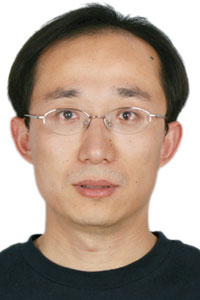 Yong He
Yong He
National Key Laboratory of Cognitive Neuroscience and Learning, China
http://psychbrain.bnu.edu.cn/teachcms/heyong.htm
What does your research focus on?
Much of my research focuses on the methodology and applications of the human brain connectome by using non-invasive neuroimaging techniques, including structural MRI, diffusion MRI and resting-state fMRI. Specifically, I am interested in (1) exploring the relation between brain structural and functional connectivity and personal behaviors, and (2) studying abnormal connectivity patterns in neurological and psychiatric diseases.
What drew you to this line of research? Why is it exciting to you?
The human brain is the most complex system in the world, but it remains largely unknown how it is structurally and functionally organized. In the past five years, I have been working on the exciting human connectome field because I realized that the combination of modern neuroimaging techniques and graph theory approaches provides a unique opportunity to reveal human brain structural and functional connectivity patterns in health and disease. Specifically, I believe that it would be possible in the future to utilize these exciting research techniques to predict human behaviors and offer imaging-based biomarkers for disease diagnosis and treatment.
Who were/are your mentors or psychological influences?
I have several mentors who have significant influences on my career. Dr. Tianzi Jiang is my PhD supervisor, and I started to be trained as a researcher in his laboratory. With Dr. Yufeng Zang’s great help, I had the opportunity to work in the exciting resting-state fMRI field. As a postdoctoral fellow at Dr. Alan Evans’s laboratory, I mainly focused on the studies of structural brain networks with structural MRI. It is impossible for me to succeed without their help, support, and encouragement.
To what do you attribute your success in the science?
The hard working is the key to my success.
What’s your future research agenda?
My future research mainly focuses on developing network-based imaging biomarkers for disease diagnosis and treatment.
Any advice for even younger psychological scientists? What would you tell someone just now entering graduate school or getting their PhD?
There are many different ways to succeed in science, but young researchers must work hard and stay patient. Also, they need to recognize those real opportunities belonging to them and prepare for taking them.
What publication are you most proud of or feel has been most important to your career?
He, Y., Chen, Z., & Evans, A. (2007). Small-world anatomical networks in the human brain revealed by cortical thickness from MRI. Cerebral Cortex, 17, 2407-2419.
This work was the first to derive a human whole-brain structural network at a macroscopic level by computing the interregional thickness correlations across populations. Moreover, this study showed that the resultant network follows “small-world” organization and contains a set of network hubs predominantly located in heteromodal association cortical regions.
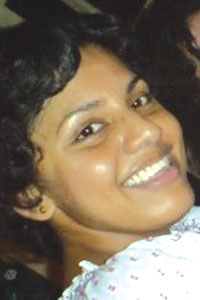 Aarti Iyer
Aarti Iyer
University of Queensland, Australia
http://www.psy.uq.edu.au/directory/index.html?id=1239
What does your research focus on?
In one line of research, I investigate people’s emotional responses to inequality and injustice, and the ways in which these emotions predict distinct political attitudes and behaviors. I also study institutional efforts to address inequality (e.g. affirmative action), focusing on beneficiaries’ and non-beneficiaries’ emotional and political responses to these programs. In a third line of work, I examine the ways in which identity change processes shape people’s experiences of life transitions.
What drew you to this line of research? Why is it exciting to you?
I am fascinated by people who take the time and trouble to participate in social justice efforts, and this interest has driven my research on emotion and politics. I first got involved in the work on identity change processes because it was the focus of a post-doctoral position that I really wanted. I find this research exciting because it can help us understand how people navigate important life transitions, whether these are positive (e.g., starting university) or negative (e.g., suffering a debilitating injury or illness).
Who were/are your mentors or psychological influences?
My most influential mentors have been Colin Wayne Leach (my primary PhD advisor) and Jolanda Jetten (my post-doctoral advisor). Both of them are brilliant and put a lot of care into their collaborations with junior scholars. Over the years, I have found their insights on the strategic aspects of career development especially valuable. They have a keen awareness of the norms and expectations within the discipline, and make an effort to let their junior collaborators know about opportunities that will help build their CVs.
To what do you attribute your success in the science?
Three things come to mind. First, I like to explore (relevant) literatures outside psychology, which broadens the scope of inspiration for my next idea or insight. Second, conversations with students and colleagues improve the quality of my work and keep me excited about the research process. Third, I make an effort to keep learning new research and statistics skills, which allows me to address different types of research questions.
What’s your future research agenda?
My collaborators and I are starting to investigate beneficiaries’ responses to affirmative action. These programs are supposed to help particular groups, but they can elicit various negative responses. For example, beneficiaries may feel stigmatised by the existence of these programs, or they may feel insulted by the implication that they need this help. We plan to examine the factors that predict different beneficiary responses to affirmative action, and the broader implications of these responses for organizational attitudes and behaviors.
Any advice for even younger psychological scientists? What would you tell someone just now entering graduate school or getting their PhD?
(1) Read broadly about your research topic, including relevant literatures outside psychology. This is hard work, but it will engage your interest and (hopefully) give you new insights. (2) Don’t spend all your time reading and running studies — it’s important to prioritize writing. I strongly recommend Paul Silvia’s wonderful book, How to Write a Lot (published by the American Psychological Association). It has made me a much more productive and efficient writer. (3) Find mentors who can help you with different aspects of your professional development — you don’t have to get everything from one person, and multiple perspectives can be helpful.
What publication are you most proud of or feel has been most important to your career?
This is a hard one, as each publication has been important for different reasons. But I’m most proud of the paper that emerged from my first independent collaboration (i.e., that didn’t involve any of my formal mentors). This is the one that made me feel like a “true” academic!
Iyer, A., Schmader, T., & Lickel, B. (2007). Why individuals protest the perceived transgressions of their country: The role of anger, shame, and guilt. Personality and Social Psychology Bulletin, 33, 572-587.
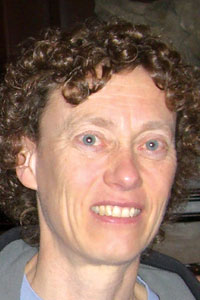 Wendy Johnson
Wendy Johnson
University of Edinburgh, UK
http://www.psy.ed.ac.uk/people/view.php?name=wendy-johnson
What does your research focus on?
My research explores how genetic and environmental influences transact to shape the way people move through their lives and become the varied individuals we see around us. This is really broad, I know. I’m particularly interested in cognitive ability, how it develops in childhood, why and how it varies so much among individuals, what it is in the brain, how people use it or don’t, how it is integrated with personality and emotional expression, how it is shaped during education, and how it changes in old age. This takes me in many directions involving medicine and mental health, sociology, education, personality, genetics, embryology, and evolutionary anthropology.
What drew you to this line of research? Why is it exciting to you?
I think as much as anything I was drawn to this line of research by the births of my children, now 19 and 21, so not children anymore at all. It was so plain from the very beginning that they are different people, but also that they are similar in many ways. I was a consulting actuary at the time, and it took me 10 years to arrange to leave that profession and go to graduate school in psychology, but I’m really glad I did!
Who were/are your mentors or psychological influences?
I have had a lot of mentors. I go back to my high school math and English teachers; some of my undergraduate professors, maybe especially Ben Freedman and Joan Moschovakis of Occidental College; some of my actuarial supervisors such as John Phillips; and Norma McCoy and Becky Loewy from San Francisco State University where I went to get ready to make an application to a PhD program when I decided to give psychology a try. But my most direct mentors in this field are at the University of Minnesota, where I did my PhD. They include Matt McGue, Tom Bouchard, Bill Iacono, Irv Gottesman, David Lykken, Auke Tellegen, and Bob Krueger. Since completing my degree, I’ve also been privileged to be mentored by Ian Deary and Earl Hunt.
To what do you attribute your success in the science?
I’d be nowhere at all without the fantastic longitudinal studies and databases my mentors and others have compiled and shared with me. But my curiosity and energy have been important too. The fact that my undergraduate degree is in math and that I spent years as an independent consultant in a technical field have been huge helps.
What’s your future research agenda?
Just to keep on. I have only the barest hints at what I really want to know! Ultimately, I’d like to reach a point where I’ve got some sense of something that can be done with what I’ve learned to help people overcome difficult situations and/or find life situations that suit them well.
Any advice for even younger psychological scientists? What would you tell someone just now entering graduate school or getting their PhD?
Take as much math as you can get your hands on. Take apart statistical methods you are taught and learn the math underlying them. It really helps with thinking clearly. Read constantly and not just in your immediate area of interest.
What publication are you most proud of or feel has been most important to your career?
The publication I’m most proud of is the one I’m working on right now. Once they come out, all I can usually see is how limited my understanding was back when I wrote them.
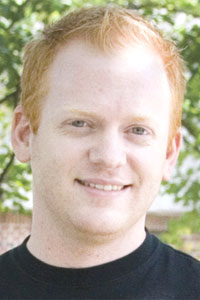 Jeffrey D. Karpicke
Jeffrey D. Karpicke
Purdue University, USA
http://learninglab.psych.purdue.edu/
What does your research focus on?
Research in my laboratory sits at the interface between cognitive science and education. Our research has been especially focused on the importance of retrieval processes for learning. My goal is to identify effective strategies that promote long-term meaningful learning and comprehension.
What drew you to this line of research? Why is it exciting to you?
There is a significant need now for research that integrates the theoretical tools and methods from cognitive science with the content and learning goals in education. This is an exciting time to be conducting this research because there is the potential to have an impact both on theoretical ideas about how the mind works and on practical strategies that can be used in educational settings.
Who were/are your mentors or psychological influences?
I have had three outstanding academic mentors: David Pisoni, my undergraduate mentor at Indiana University; Henry (Roddy) Roediger, my graduate mentor at Washington University in St. Louis; and James Nairne, my mentor and colleague at Purdue University. In addition, my father John Karpicke, sparked my interest in the scientific study of learning when I was young. I am extremely grateful to these four people. I am also very fortunate to have several great colleagues and a terrific group of students who have influenced me in many ways.
To what do you attribute your success in the science?
I think our work has garnered some attention and had some impact because we are attempting to integrate ideas from the cognitive science of learning within research on real-world problems in education. I think the time is ripe for this approach, and learning is something that many people care a great deal about.
What’s your future research agenda?
There are many ways to expand cognitive research on learning in educational directions. We need to continue expanding this research by examining individual differences in learner characteristics, by using materials that are identical to those used in educational settings, by examining learning strategies that would be plausible in education, and by assessing meaningful learning, which includes peoples’ abilities to make inferences, transfer and apply their knowledge, and solve new problems in creative ways.
Any advice for even younger psychological scientists? What would you tell someone just now entering graduate school or getting their PhD?
Throughout your entire educational career (K-16), you have been rewarded for being a good consumer of knowledge. You learn lots of things, do well on tests and other activities, and get good grades. Then, all of the sudden the rules change, and there is no longer a premium placed on what you can consume. You are now rewarded for the quality of what you can produce. I encourage my students to change their mindset from that of a consumer to that of a producer as soon as they can.
Please write a sentence or two about the publication you are most proud of or feel has been most important to your career. As challenging as it may be, please limit it to one publication.
Karpicke, J. D., & Blunt, J. R. (2011). Retrieval practice produces more learning than elaborative studying with concept mapping. Science, 331, 772-775.
I am proud of this paper for many reasons. It brought a good deal of attention to our research program, and I think it represents a good example of research that integrates cognitive science and education. But I am perhaps proudest because this work was Janell Blunt’s undergraduate honors thesis research project, and I am proud of all of her hard work.
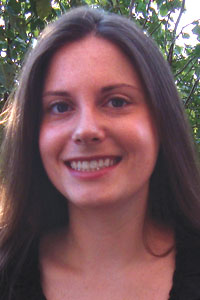 Katherine Kinzler
Katherine Kinzler
The University of Chicago, USA
What does your research focus on?
My research focuses on the development of social cognition. I believe that studying early development is essential for understanding the nature and potential malleability of human social interactions. Much of my research investigates infants’ and children’s reasoning about language as a social category. I find that even before they can talk themselves, children evaluate others based on how they speak. Children’s language-based social evaluations persist throughout development. In several cases, I find that children’s social preferences for others based on their language and accent are greater than those based on race.
What drew you to this line of research? Why is it exciting to you?
Psycholinguists, anthropologists, and historians have long argued that language and accent have important consequences for how we view others. Though many psychologists are interested in the origins and development of social cognition, studies of language as a social category are somewhat underrepresented in research by experimental psychologists who study social groups. My research explores the developmental origins of language as a social category. I find it fascinating to observe empirical evidence that language entails an important, and potentially primary, factor by which we evaluate our social world.
Who were/are your mentors or psychological influences?
I have been fortunate in having fantastic mentors. As an undergraduate at Yale, I took a class on cognitive development with Karen Wynn, and was immediately hooked. I then spent the next two years working as a research assistant in her lab, which cemented my desire to attend graduate school. My graduate advisor Elizabeth Spelke has been an incredible mentor. She is both brilliant and supportive, and encouraged me throughout graduate school at Harvard and beyond. I hope to be as good a mentor to my own graduate students. As an assistant professor at the University of Chicago, I have wonderful and supportive senior colleagues in developmental psychology — Susan Goldin-Meadow, Susan Levine, and Amanda Woodward.
To what do you attribute your success in the science?
In many ways, I was very lucky. I had fantastic mentors and fantastic opportunities. I feel fortunate that my dissertation research proceeded in interesting ways. I also have worked hard — projects rarely are successful the first time around. I think that perseverance is very important.
What’s your future research agenda?
Much of my research so far on infants’ and children’s reasoning about language as a marker of social group membership focuses on monolingual children. Yet, most children in most countries are exposed to more than one language early in development. I am particularly interested in exploring how monolingual and bilingual children compare. I am also interested in thinking about how early preferences for native speech and native speakers interact with cultural beliefs about linguistic status.
Any advice for even younger psychological scientists? What would you tell someone just now entering graduate school or getting their PhD?
I would suggest choosing a topic you love, and also working on a few different research projects at once. Having a research project fail can feel so crushing (particularly if it is your first one!), so working on a few ideas or lines of research can help. I would also advise to take a deep breath and step back from your research once in a while.
What publication are you most proud of or feel has been most important to your career?
Kinzler, K. D., Dupoux, E., & Spelke, E. S. (2007). The native language of social cognition. The Proceedings of the National Academy of Sciences of the United States of America, 104, 12577-12580.
I am particularly proud of this paper, as it began with data collected during my very first year of graduate school. This paper provides evidence that infants preferentially interact with others who speak their native language. I was excited about this topic as a student, and this area of research continues to captivate me today.
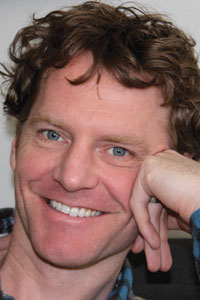 Joe Magee
Joe Magee
New York University Wagner Graduate School of Public Service & Stern School of Business, USA
What does your research focus on?
I study the influence of social hierarchy on thought and behavior, and how people construe and communicate about their social worlds. The theme that ties these areas of research together for me is social power, defined by the dynamics of dependence and control in interpersonal relationships. In particular, I am interested in how the existence of power in social relationships and organizations plays an important role in construal and behavior.
What drew you to this line of research? Why is it exciting to you?
Social inequality and injustice are pervasive phenomena that have always bothered me. Trying to understand the different psychological worlds that people inhabit based on the social structures in which they reside seems like a basic, useful step in addressing these social problems.
Who were/are your mentors or psychological influences?
As an undergraduate at the University of Michigan, I was lucky to have two thoughtful mentors, Frank Yates and Tom Finholt. Deb Gruenfeld, my doctoral advisor at Stanford University, was an excellent mentor for how to think creatively and write with imagination. Lara Tiedens sharpened my thinking substantially. All of my collaborators, particularly Adam Galinsky of the Kellogg School of Management, have been generous with their time and ideas, exerting immeasurable influence on my research.
To what do you attribute your success in the science?
I attribute any success I have had to a sizeable network of smart and generous people and my own consumption of multidisciplinary social science research.
What’s your future research agenda?
I am trying to consolidate what my co-authors and I have learned about social hierarchy and power with a couple of review articles (with Adam Galinsky and Pam Smith), and I am expanding the methods that I use and topics that I study by collaborating with colleagues on new projects in social neuroscience (with Malia Mason and Susan Fiske) and interracial interactions (with Tessa West).
Any advice for even younger psychological scientists? What would you tell someone just now entering graduate school or getting their PhD?
I would advise budding social psychologists to look for interesting problems to which people have not applied adequate social psychological theory. Read outside of social psychology in the neighboring fields of economics, sociology, political science, and organizational behavior, and spend more time reading work published before 1980 than after.
What publication are you most proud of or feel has been most important to your career?
Magee, J. C., Milliken, F. J., & Lurie, A. R. (2010). Power and the construal of a crisis: The immediate aftermath of September 11, 2001. Personality and Social Psychology Bulletin, 36, 354-370.
I am most proud of this publication because my co-authors and I were able to bring intellectual creativity and analytical precision to bear on basic psychological processes related to an important social event.
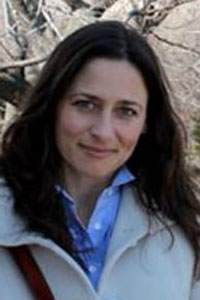 Betsy Levy Paluck
Betsy Levy Paluck
Princeton University, USA
What does your research focus on?
I’m interested in prejudice and conflict reduction. I’m especially interested in developing and testing theory using field experiments with real world prejudice and conflict reduction interventions. I’ve worked with media interventions in post-conflict countries in Central and Horn of Africa, and with peer-influence interventions in high schools in the United States. All of this work has gotten me interested in the nature of social change more broadly. For example, some settings are so mired in conflict that it is considered “cultural.” I’m interested in psychological understandings of culture and cultural change, and how this connects to theories of behavioral and social norm change.
What drew you to this line of research? Why is it exciting to you?
I have always loved social psychology — its theories and its creative and rigorous methods — and I was attracted to the idea of applying these theories and methods to pressing social issues. I am always excited to work directly with practitioners who implement these interventions. They know all about the settings, and I get some of my best ideas for measurement and theory by listening to them.
Who were/are your mentors or psychological influences?
I have had many mentors, who have given to me generously and continue to do so now that I’m an assistant professor. They include professors (and those professors’ graduate students!) from my undergraduate time, graduate school mentors, and now the faculty with whom I work here at Princeton. In particular, Donald Green was my advisor in graduate school. He gave me an unrivaled education in political psychology and methodology, and he always encouraged me to be daring in my work. He is the type of mentor who gave me a great deal of independence, but also would attend to anything from my grammar to my overarching career path, when necessary.
To what do you attribute your success in the science?
To my mentors and my collaborators. My collaborators include the schools and non-governmental organizations with whom I work on the ground.
What’s your future research agenda?
I will continue to investigate how, and for how long, social norms of intergroup tolerance and cooperation co-evolve with behavioral patterns. With a colleague Hana Shepherd, I have designed some studies combining experimental methods with social network techniques, as a way of understanding the diffusion of social norm perceptions. I am extremely interested in connecting this question to theories of culture and cultural change. I’ve advanced the hypothesis that social norms are a mechanism for cultural change, because understandings of culture are fundamentally similar to understandings of socially shared patterns of behavior, language, cognition — i.e., perceived social norms. I am also lucky to collaborate with graduate students who are interested in pulling apart some of these more macro ideas in the laboratory. I am working to use the Lewin and Cialdini cycle of research that constantly loops from the field to the laboratory and back.
Any advice for even younger psychological scientists? What would you tell someone just now entering graduate school or getting their PhD?
One piece of advice would be to read: read the classic articles and books in the field — Lewin, Moscovici, Hovland, Schacter (in no particular order and just as an example). Read about how other fields have approached your questions. Read the newspaper. Inspiration can be found in many places, not just this month’s edition of the most prestigious journal. Another piece of advice would be to be the best methodologist you can be. Get great statistical training. Even if you don’t end up using complicated statistical methods, you should understand them. Then you can be creative in your research design, knowing you stand on firm ground because you really understand inference and uncertainty.
What publication are you most proud of or feel has been most important to your career?
My first publication on a field experiment in Africa was really key for me — its publication told me, and I hope others, that you can do this kind of work as a social psychologist.
Paluck, E. L. (2009). Reducing intergroup prejudice and conflict using the media: A field experiment in Rwanda. Journal of Personality and Social Psychology, 96, 574-587.
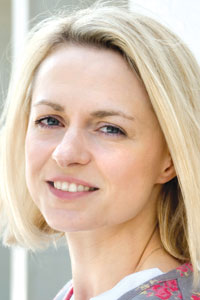 Angelica Ronald
Angelica Ronald
Birkbeck University of London, UK
http://www.bbk.ac.uk/psychology/our-staff/academic/angelica-ronald
What does your research focus on?
What causes people to have mental health problems across the lifespan. My research has so far focussed on neurodevelopmental disorders, in particular, autism spectrum conditions. I am just starting a new project on the causes of psychotic experiences in adolescence. Both of these projects involve a longitudinal twin design to estimate the role of genetic and environmental influences on these conditions, as well as molecular genetic association designs. I have just set up the Genes Environment Lifespan (GEL) lab at Birkbeck and am excited by the great team of researchers I will be working with.
What drew you to this line of research? Why is it exciting to you?
Like a lot of people, I think the human brain is the most interesting thing in the world. But what makes me curious is what makes people different from one another. I am interested in finding the genetic and environmental influences that lead to one child developing autism and another not, or why one adolescent has psychotic experiences and another does not.
Who were/are your mentors or psychological influences?
I was supported in my decision to continue in science beyond my undergraduate degree at Oxford by Professor Gordon Claridge, and since then, Professor Francesca Happé, Professor Robert Plomin, Professor Mark Johnson, and Professor Tony Charman have all been excellent mentors. I have been a member of the Behavior Genetics Association and the International Society for Autism Research since starting my PhD, and they have provided valuable support and a sense of scientific community. Their annual conferences are fun too!
To what do you attribute your success in the science?
A car crash. After graduating, I worked in the advertising industry selling snack food (which I didn’t enjoy) while intending to apply to do a PhD. I sat at home for two weeks with whiplash (there were no serious injuries, thankfully) and it gave me time to think about where to apply and what to do. After that it has been a case of being in the right place and having excellent collaborators and mentors.
What’s your future research agenda?
My PhD supervisor Robert Plomin always said that good ideas are what make your career. The scientists I most admire have had far-reaching ideas about new ways to think about data, or new experimental designs. It’s easy to do the same old thing with slightly new tweaks, but it takes clear thinking and bravery to do something completely avant-garde. Fingers crossed! In the near future, I hope to make some interesting findings in my new project on the causes of psychotic experiences in adolescence.
Any advice for even younger psychological scientists? What would you tell someone just now entering graduate school or getting their PhD?
Well done for getting this far. Next step is to be stubborn and only study something you find fascinating that has not been done before. Your findings will make people stop and listen, and the working day will only ever go too fast, which is a privileged situation to be in.
What publication are you most proud of or feel has been most important to your career?
I chose this genome-wide association study; it involved scanning the genome to find common genetic variants associated with risk for autistic traits. We took two novel routes: First, we studied different autistic symptoms separately because there was evidence that social and non-social autistic traits were caused by largely different sets of genetic influences. Second, we used a dimensional measure of autistic traits rather than a categorical affected-unaffected design because we hypothesised that some common genes influencing risk for autism spectrum disorders are also influencing milder manifestations of autistic symptoms in the general population. It included three stages of replication and involved a lot of collaboration and bringing together of skills.
Ronald, A., Butcher, L. M., Docherty, S. L., Davis, O. S. P., Schalkwyk, L. C., Craig, I. W., and Plomin, R. (2010). A genome-wide association study of social and non-social autistic-like traits in the general population using pooled DNA, 500K SNP microarrays, and both community and diagnosed autism replication samples. Behavior Genetics, 40, 31-45.
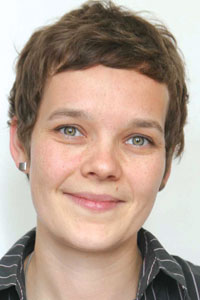 Susanne Scheibe
Susanne Scheibe
University of Groningen, The Netherlands
http://www.rug.nl/staff/s.scheibe
What does your research focus on?
I study how emotional experience and emotion regulation change as people age, and how such changes affect important realms of life, such as work life. When looking at the many (mostly negative) changes that accompany aging, emotions clearly stand out. Emotional experience becomes more positive and more stable with age at least until people reach their 70s and 80s. This is actually surprising given that a large part of emotion regulation requires cognitive control, which declines more than other competencies with age. I am trying to understand the role of motivational and competence-related factors for the positive lifespan trajectory of emotion. For example, in one study we showed that older adults can be more efficient in regulating emotions than younger adults, as indicated by smaller cognitive costs. In my newest work, I started to investigate how emotional aging can support older adults’ well-being and performance in work contexts.
What drew you to this line of research? Why is it exciting to you?
I was always fascinated by the way in which emotions shape our experience and behavior. Emotions make stimuli and experiences meaningful and relevant. When I started my PhD in a group of lifespan researchers around Paul Baltes at the Max Planck Institute for Human Development in Berlin, I had the opportunity to study emotion from a lifespan developmental perspective. I find it inspiring to think of something positive that happens to us as we age. Going forward, I am excited by the possibility that we could actually use the emotional domain to compensate for areas of decline with age, in order to enhance older adults’ decision-making, motivation and learning.
Who were/are your mentors or psychological influences?
My first important mentor was Mike Bagby from the University of Toronto, with whom I worked during an academic exchange when I was still an undergrad at Humboldt-University Berlin. Mike introduced me to the world of psychological science and was the first who made me believe in my ability to become a researcher myself. For my PhD, I was extremely fortunate to join Paul Baltes and his group of excellent researchers at the Max Planck Institute in Berlin. The institute was an extraordinary place — strong in theory, strong in methods, well-equipped, and a favorite meeting place for psychological scientists from across the world. From my PhD mentors Paul Baltes and Alexandra Freund I learned countless lessons about conducting research and managing it. I also became part of a strong academic network that over the years allowed me to do research overseas. Pursuing postdoctoral work with Fredda Blanchard-Fields and Laura Carstensen, two wonderful scientists and role models, I learned that it is possible to study topics that really matter to the lives of people with scientific rigor and also how to write them up beautifully.
To what do you attribute your success in the science?
Whatever success I had, I attribute to excellent training, strong mentoring relationships, and great colleagues who kept me thinking and challenge myself. I love collaborative work. I have been told that I am good at listening (non-defensively) to comments and working with them. I am trying to see failures as a learning experience. And I have a husband who is willing to move with me across the globe so that I can have it all, both a career and family.
What’s your future research agenda?
Becoming (a bit) older myself, I find it increasingly interesting to consider the practical implications of emotional aging, such as in work life. I believe that emotional competence is a strength of older workers that has not been sufficiently appreciated. Some key questions my students and I have begun to address include: Does older adults’ increased emotional competence benefit them in the workplace, so that they can maintain performance despite cognitive decline? Can we develop emotion-focused approaches to enhance older workers’ learning, productivity, and occupational well-being? How can we motivate people to postpone retirement? I think finding answers to these types of questions will be important as we come to terms with a rapidly aging workforce across the Western world.
Any advice for even younger psychological scientists? What would you tell someone just now entering graduate school or getting their PhD?
Working as a researcher means that work never stops. Science is very rewarding but also very demanding. It often feels like one should run yet another study, write yet another paper or grant, and work through the next vacation. It is easy to lose the balance between work and life along the way. So, do work hard but do not forget life. Do have kids and cultivate your family and friendships. Graduate school is just the beginning of a long work life and thus, it seems important to develop a “sustainable” pace. With careers likely extending further into old age, we may have more time than we think.
Go abroad! Join multiple labs, seek diverse experiences. Every place will open your eyes to something different, which will broaden your way of thinking, of doing research, and of managing a lab. Moreover, it allows you to develop collaborations and friendships around the world.
What publication are you most proud of or feel has been most important to your career?
Scheibe, S. & Carstensen, L. L. (2010). Emotional aging: Recent findings and future trends. Journal of Gerontology: Psychological Sciences, 65(B), 135-144.
This paper, which is part of the 65th anniversary series of the JGPS, gave me the opportunity to lay out systematically my view on emotional aging, and it was fun to speculate (without being constrained by the reality of data) on the future directions that the field and my own research might take.





APS regularly opens certain online articles for discussion on our website. Effective February 2021, you must be a logged-in APS member to post comments. By posting a comment, you agree to our Community Guidelines and the display of your profile information, including your name and affiliation. Any opinions, findings, conclusions, or recommendations present in article comments are those of the writers and do not necessarily reflect the views of APS or the article’s author. For more information, please see our Community Guidelines.
Please login with your APS account to comment.